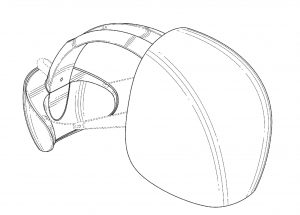Magic Leap recently announced a partnership with Twilio to build out new communications apps for its yet-to-be-released mixed-reality headset. Now the company promising to deliver groundbreaking augmented-reality technology wants to let you connect with other people to create a shared visual experience.
Not a whole lot is known right now about how Magic Leap’s technology works. The company’s founder and CEO, Rony Abovitz guards the secret like it was government classified. Broadly, he says the technology uses the imaging power of your brain to create a hyper-realistic display overlaid on the real world.
It sounds cool already but the business partnership with Twilio will help utilize the company’s messaging tools and services so users can interact with holographic versions of each other. It’s still quite a ways out but Abovitz envisions scenarios where meetings are held with people from across the world seemingly in the same room. Or where parents send their children birthday cards with holographic versions of themselves speaking the message personally.
“We wanted to go back to a place where there were just people, and technology would be this thing hovering there, almost like magic. Where it’s the primal social relationships that your ancestors had,” Abovitz said during Twilio’s SIGNAL conference. “And technology’s not in the way, it’s not interfering, it’s not taking over your life. It’s simply assisting your ability to make human connections.”
It’s a lofty vision but tech giants like Google, Inc. and Alibaba are already convinced of its promise. Both invested heavily in Magic Leap and the mixed-reality startup has garnered an impressive $1.4 billion in funding so far.
As part of the partnership, Magic Leap will also select 10 Twilio developers to get coveted early access to the hardware and develop its very first apps. It’s an important step toward creating the software and app ecosystem that will ultimately define the consumer’s experience when the headset launches.
But it’s still unclear at this point when the public will finally get their hands on the technology. Abovitz dodged with neither a yes nor no when when Lawson asked him directly if the audience would get a demo of the hardware in time for next year’s SIGNAL.
We also don’t know what the headset will even look like. But we did learn recently of one design Magic Leap had been toying around with. The company was recently awarded a design patent on a helmeted device.

But don’t assume this is what we’ll see in the final product. Magic Leap’s VP of Public Relations, Andy Fouché, was quick to deny it. Looks like the shroud of mystery and hype hasn’t been undone just yet.











